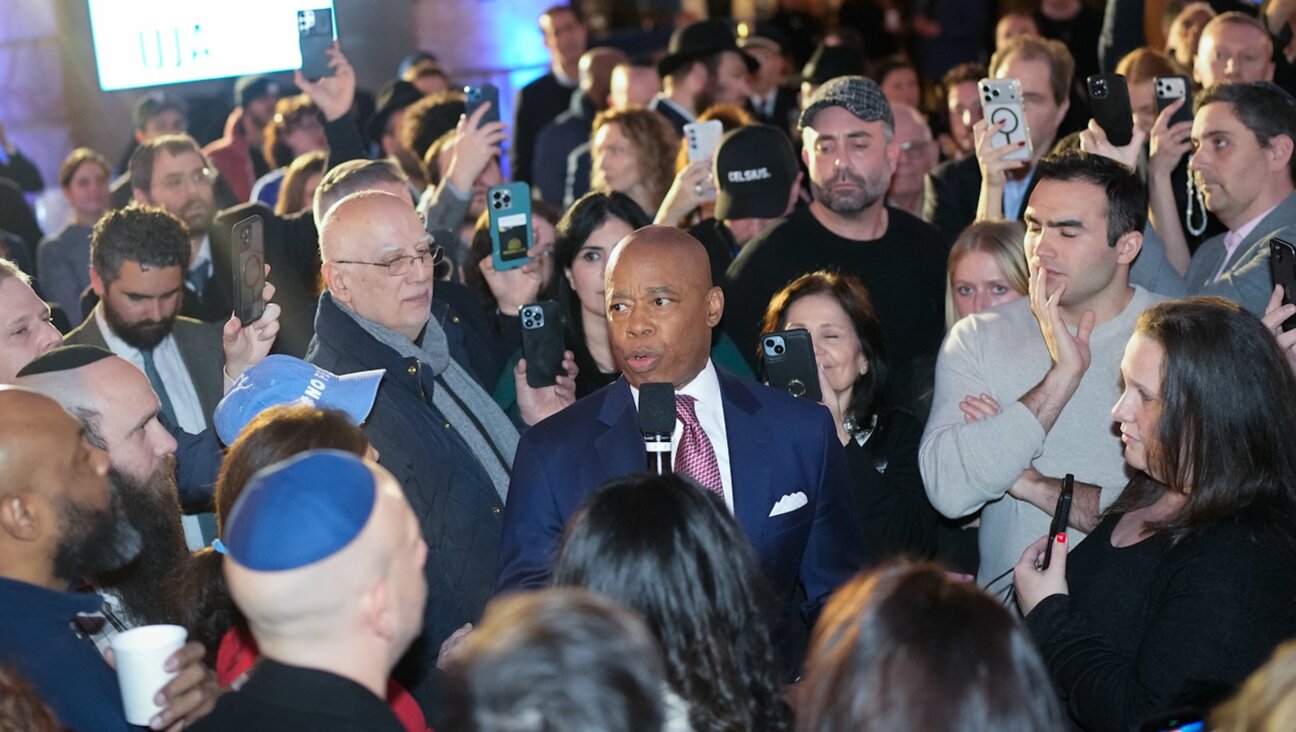U.N. Chief Shows Readiness To Side With Washington On Middle East
United Nations – When he was elected secretary general of the United Nations last fall, Ban Ki-moon struck veteran Middle East hands as having a rather limited grasp on the volatile region. But less than a year into office, the former foreign minister of South Korea has raised more than a few eyebrows at the world body by exhibiting a notable sympathy toward Israeli interests.
Ban has not yet delved deeply into Middle Eastern diplomacy, limiting himself to issuing statements and making largely ceremonial visits to the region. But he has quietly rejected advice from key U.N. insiders that he distance the world body from the Bush administration, and earlier this year — with strong backing from Washington — he pushed out his point man on Israeli-Palestinian affairs.
While few expect Ban to become a staunch supporter of Israel, his willingness to challenge entrenched U.N. views on the Middle East has generated a sense of optimism among Jewish advocacy groups.
“There’s a feeling and a hope of fresh blood and fresh thinking,” said Sybil Kessler, director of U.N. affairs at B’nai B’rith International.
The power struggle over Middle East policy between Ban and veteran U.N. officials burst into public last week, when Britain’s Guardian newspaper published an internal memo written by the U.N.’s top envoy for Israeli-Palestinian affairs, Alvaro De Soto. In the 53-page memo, the outgoing special coordinator for the Middle East peace process asserted that U.N. deference to Washington and Jerusalem was undermining the world body’s position as an impartial player.
De Soto, a veteran U.N. troubleshooter and former Peruvian diplomat, wrote that the U.N. had ignored his recommendation that the world body be more accommodating toward the Hamas-led Palestinian government and that it reach out to Syria. He also claimed that Ban had kept him out of key meetings during the South Korean’s three trips to the region as secretary general.
“I regret that my advice has gone unheeded,” de Soto wrote in the memo, noting that he had repeatedly shared his views with Ban both before and after the secretary general’s election last October.
De Soto presented his critique as an end-of-mission report marking the end of his two-year appointment as special Middle East coordinator. But whereas a large number of senior envoys and officials appointed by Ban’s predecessor, Kofi Annan, resigned in order to allow the new secretary general to appoint his own personnel, de Soto had indicated a willingness to continue dealing with Middle Eastern issues at a senior level. The Peruvian’s termination was in fact decided earlier this year by Ban, with strong support from the Bush administration, according to two sources privy to the deliberations. The sources declined to be identified.
De Soto “was clearly frustrated with his role and his impression that Ban was going too far toward the U.S. on the Mideast,” a source familiar with the decision told the Forward, on condition of anonymity. “Ban listens to the member states, and there is no question the U.S. has influence.”
Carolyn Vadino, a spokeswoman for the American mission to the U.N., declined to comment on the subject.
Discussions at the U.N. earlier this year, aimed at formulating Ban’s Middle East policy, make clear the degree to which de Soto’s views were at odds with Washington’s. In an internal memo from January, obtained by the Forward and allegedly authored by de Soto, the Peruvian argues that the decline of American diplomatic leadership is a “key feature of the new strategic environment” and that a recent American claim about a new Israeli-Palestinian peace effort “appears to be largely window-dressing.”
“I would urge the new secretary general not to leap into something designed to curry favor with the Bush administration’s January 2007 Middle East predispositions — these will, in any case, change,” the memo reads. “Secretary General Ban will be the secretary general in five, possibly 10 years. He should ensure that he preserves his independent role and position in the most volatile region in the world, and that he does not simply align himself with the policies of a particular U.S. administration which will be out of office in two years…. Our policy should be distinguishable from that of Secretary [of State Condoleezza] Rice or Israeli Foreign Minister Tzipi Livni.”
De Soto has been replaced by Michael Williams, a British diplomat who previously worked in the U.N.’s department of political affairs and is perceived as being sympathetic to Israel. Ban also appointed a career American diplomat, B. Lynn Pascoe, as head of the political affairs department. Pascoe is the first American official in a generation to head the department, which oversees the main diplomatic dossiers and has authority over envoys such as de Soto.
Ban’s record to date on the Middle East has received a fairly positive reception from Jewish organizations. The Anti-Defamation League recently criticized the secretary general’s statement on the anniversary of the Six Day War, because of its focus on Palestinian suffering. But he was well received by the Conference of Presidents of Major American Jewish Organizations, and he avoided a likely dust-up with the Jewish community by declining to attend the funeral of his controversial predecessor, Kurt Waldheim, who passed away last week.
“The secretary general has repeatedly said the Middle East was one of his priorities; he makes a point in having good relations with all the actors,” said Stéphane Dujarric, Ban’s liaison to Jewish groups, adding that de Soto’s views were “his own.”
While the outgoing Peruvian envoy’s views may not be surprising to veteran U.N. observers, the sentiments he expressed in his farewell memo are likely to confound Jewish critics of the world body’s perceived pro-Palestinian bent.
A “tendency toward self-censorship — treating Israel with exquisite consideration, almost tenderness — exists at the U.N.,” de Soto wrote. This is “partly for our own reasons: the legacy of the Zionism equals racism resolution and the resulting political and budgetary cost for the U.N., and Israel’s demonstrated capacity to undermine U.S.-U.N. relations. The Israeli mission to the U.N., in my experience, has unparalleled access in the secretariat, even at the highest levels.”














